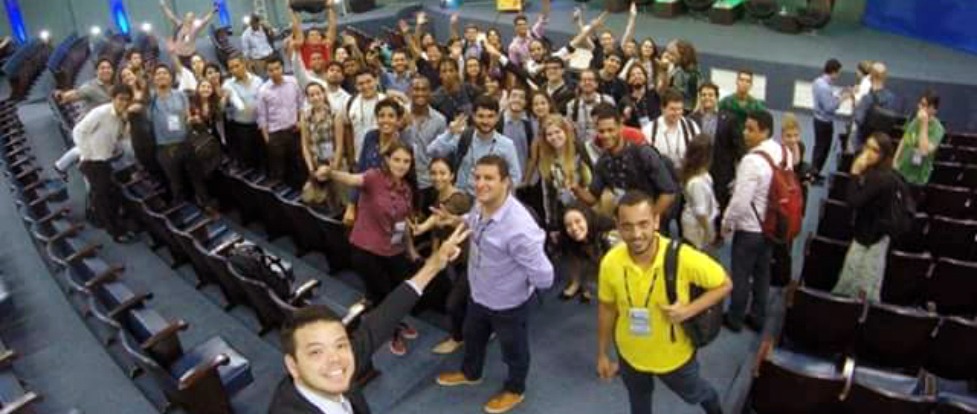It’s weird when you think about it. More than any other demographic, people under the age of 25 spend all our time online. We’re the first generation to grow up with the Internet, and we use it for everything; communication, recreation, work, art. And yet, when it comes to Internet governance, we’re almost entirely absent from the conversation.
That’s why myself and a few like-minded folks from across Latin America started the Youth Observatory. The Youth Observatory is a special interest group within ISOC meant to both make sure youth voices are heard in governance discussions and explain the importance of Internet governance to other young people.
When I was younger, I got this feeling that everything about privacy and security was aimed at other people’s problems. Everybody was talking to me as if I was 50 years-old, and I should care about my credit card. But my problems were much more like, who’s seen my pictures on Facebook. That’s where we’re trying to start the privacy conversation, not only for our 20-something peers but for the teens who are navigating adolescence in a continuously connected world.
We want to start the conversation with 15 year-olds by saying ‘Hey buddy, you know, you’re there on the Internet the whole day. Imagine yourself without WhatsApp. Imagine somebody from Facebook reading your messages to your girlfriend or your friends. And you cannot stop it; you don’t understand how the policy works.’ When you’re 15, you feel like having some independence and being alone. So it’s important to make them understand that you know, this privacy can be violated. Especially if we don’t get our opinions heard, and speak our minds on how this should be protected.
As my colleague Carlos Guerrero points out, it’s not just that young people need to know more about Internet governance. Internet Governance organizations also need to hear more from young people.
“Youth voices are really important in this discussion because we have a different point of view of the things,” he says. “This point of view is new and is free of the past. That’s why we think that it’s really important to bring more youth voices to the discussion because we are bringing the new point of view of the things in the conversation.”
The Youth Observatory isn’t just about governance, though. It’s also about making sure people have the skills to deal with the problems they face in online in their day-to-day lives. In the case of young women, that means being able to fight back against harassment.
That’s why my colleague Angie Contreras also wants to make sure we focus on getting young women the informational skills to push back against digital violence.
“It’s the age of information on the Internet,” she says. “And specifically in social networks, and so it’s really important to increase informatic skills, not only for women but for all marginalized people that use the Internet and social networks, to make the Internet a place with no discrimination. To make it a place where people won’t be bullied.”
Right now, the Youth Observatory is only focused on Latin America. Language is a barrier, and just trying to get established in two languages, Spanish and Portuguese, is a challenge. Once we’re more established in the region, though, we’ll just jump and go global.
As Carlos so wisely put it, youth isn’t just the future. We’re the present. And we’re not just trying to make a better online tomorrow for young people; we’re trying to make a better today.
Get In Touch
Please get in touch with us! You can reach us on our Facebook page or by contact e-mail!

